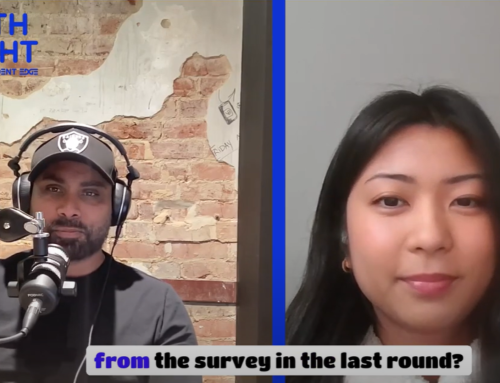As we know, the next year is set to be a big one in the political landscape with elections in both Australia and the US. Americans will cast their vote on 5 November, while Aussies will take to the polls for a federal election some time to be announced before September 2025.
While we’ve already established that today’s young people are far more interested in politics than many give them credit for (which you can read about here), what exactly do they care about when it comes to government policies?
Well, up there with one of the most important issues concerning Gen Z are student loan debts. With a record-high 90% of 18-24-year-olds already enrolled to vote in the Australian election, any decision or promise regarding HECS could therefore prove pivotal for those politicians trying to win seats.
The results of our latest survey showcase just how much young Aussies know about their HECS and student loan repayments. Using the results from our August 2024 Youth Omnibus, our latest YouthInsight offering, providing clients with fast, reliable insights about Gen Z, here’s what we found:
Key Stats
- 82% of young people are considering a university degree in the future, but 19% “had no idea of the degree cost”.
- 32% of young people said they understood they would incur a HELP loan debt when they enrolled in university, but not that it would be indexed to inflation every year.
- 41% said they had no idea how much it would be.
How much does Gen Z know about the HECS debt they’re getting themselves into?
Of the young people we surveyed, 82% of prospective students said they were thinking about doing a university degree in the future, but 19% of them said they “had no idea of the degree cost”.
Less than half (41%) said they had a “good idea” of the cost, while two in five (40%) said they just had “some idea” of the cost.
 For those that had already enrolled in university, 32% said they understood they would incur a HELP loan debt, but not that it would be indexed to inflation every year.
For those that had already enrolled in university, 32% said they understood they would incur a HELP loan debt, but not that it would be indexed to inflation every year.
Additionally, 14% said they did not understand either of those things.

Specifically, only a quarter (26%) said they knew approximately how much their total HECS debt would be at the end of the degree. 34% said they had “some idea” but 41% said they had no idea how much it would be.

What can be done to help Gen Z feel more comfortable about their student loans?
There have been bold moves by the US government to slash student loans, offering relief to millions of young people burdened by the rising costs of higher education.
Despite his initial student debt relief plan being struck down by the Supreme Court in 2023 (which would’ve cancelled $430 billion of the $1.6 trillion outstanding federal student loan debt in one go), President Joe Biden has still managed to find ways to cancel more than $170 billion in debt during his four years in office, according to US Education Department data.
The administration has managed to implement never-before-seen relief by improving and expanding existing loan forgiveness programs to help nearly 5 million Americans – more than any government before.
Meanwhile in Australia, the bill to wipe $3 billion in HECS debt was officially introduced to parliament in August, after being announced in May.
If the bill gains the support of the Coalition or Greens and Crossbench to pass Senate, the way HECS is indexed will be calculated based on whichever figure is lower: the Consumer Price Index (CPI) or Wage Price Index (WGI). This will be backdated to June 2023.
The bill also includes other policies to make life for students easier, including free uni prep courses and placement payments for nurses, teachers, midwives and social workers.
With elections just around the corner, it’s likely there will be further announcements on HECS debts and how they could change moving forward to relieve the pressure on young people at university.
However, it’ll be important for political parties to consider not just the needs of Gen Z when it comes to student loans, but also their concerns about inflation.
If you’d like to know more about how we can help you with your research needs, get in touch with us here, or to add your question to our next Youth Omnibus wave, click here.









Leave A Comment